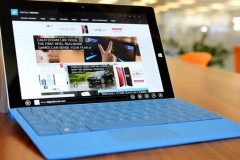SHANGHAI, China, Feb. 20, 2023 (GLOBE NEWSWIRE) -- Shanghai Junshi Biosciences Co., Ltd (“Junshi Biosciences”, HKEX: 1877; SSE: 688180) today announced that the pre-specified interim analysis has been completed for a randomized, double-blind, placebo-controlled, multi-center phase III clinical study (“TORCHLIGHT Study”, NCT04085276) examining the company’s product toripalimab in combination with paclitaxel for injection (albumin-bound) in patients with an initial diagnosis of stage IV or recurrent/metastatic triple-negative breast cancer. The Independent Data Monitoring Committee (IDMC) has determined that the primary endpoint met the pre-defined efficacy boundary. Junshi Biosciences will communicate with the regulatory authorities regarding matters related to the supplemental new drug application in the near future.
According to GLOBOCAN 2020, breast cancer had the highest incidence rates worldwide, with 2.26 million new cases and 0.68 million deaths in 2020. In China, 0.42 million new cases and 0.12 million deaths due to breast cancer were reported in 2020, accounting for 18.4% and 17.1% of global cases, respectively. Amongst these breast cancer cases, triple-negative breast cancer (“TNBC”) accounted for approximately 15% to 20% of them. TNBC is a more aggressive type of tumor with a higher risk of recurrence and poor prognosis. Advanced TNBC is insensitive to targeted therapy and endocrine therapy, and there are currently no specific treatment methods available.
In recent years, oncology immunotherapy drugs represented by PD-(L)1 inhibitors have achieved a series of breakthroughs in treating various types of tumors. However, to this day, no immunotherapy drugs have been approved for advanced TNBC in China, and chemotherapy remains the primary treatment option. Alternative drugs include anthracyclines, taxanes, platinum-based drugs, etc. Both mono-chemotherapy and combined chemotherapy have poor efficacy, with a median survival time of about nine to 12 months and a 5-year survival rate of less than 30%.
The TORCHLIGHT study is the first Phase III registration study in China to achieve a positive outcome in an advanced triple-negative breast cancer immunotherapy. This randomized, double-blind, placebo-controlled, multi-center Phase III clinical study was designed to compare the safety and efficacy of toripalimab combined with paclitaxel for injection (albumin-bound) and placebo combined with paclitaxel for injection (albumin-bound) in patients with an initial diagnosis of stage IV breast cancer or recurrent/metastatic triple-negative breast cancer.
The interim analysis of this study demonstrated that, compared with paclitaxel for injection (albumin-bound), toripalimab in combination with paclitaxel for injection (albumin-bound) in patients with initial diagnosis of stage IV or recurrent metastatic triple-negative breast cancer can significantly prolong the progression-free survival (PFS) of PD-L1 positive patients. Meanwhile, the overall survival (OS), one of the secondary endpoints, also showed a clear trend of improvement in PD-1 positive patients as well as in all patients regardless of PD-1 status. The safety data of toripalimab is consistent with known risks, and no new safety signals were identified.
“The TNBC subtype of breast cancer is the most aggressive and has the worst prognosis,” said Professor Zefei JIANG from the Department of Oncology at the Chinese People’s Liberation Army General Hospital, the Vice President and Secretary General of the Chinese Society of Clinical Oncology (CSCO) and Principal Investigator of the TORCHLIGHT study. “Advanced TNBC patients have limited survival rates and lack effective treatment methods. Aiming to improve patient survival, a group of Chinese researchers successfully conducted the first phase III study on immune-oncology for advanced TNBC patients, even amidst the COVID-19 pandemic, and achieved breakthrough results. These results demonstrate that the combined use of the monoclonal antibody, toripalimab, with traditional chemotherapy significantly prolonged the PFS of patients, and this has the potential to become a new standard treatment for patients with an initial diagnosis of stage IV TNBC as well as those with recurrent/metastatic TNBC, offering patients new hope!”
“I’m extremely pleased that TORCHLIGHT research has been successful, and its success is a result of the dedicated efforts of patients, researchers, and development teams,” said Dr. Jianjun ZOU, the President of Global Research and Development at Junshi Biosciences. “We will work closely with regulatory authorities to ensure that relevant indications are approved as soon as possible. We hope that toripalimab will provide better treatment options for patients and address unmet medical needs.”
About Toripalimab
Toripalimab is an anti-PD-1 monoclonal antibody developed for its ability to block PD-1 interactions with its ligands, PD-L1 and PD-L2, and for enhanced receptor internalization (endocytosis function). Blocking PD-1 interactions with PD-L1 and PD-L2 promotes the immune system’s ability to attack and kill tumor cells.
More than thirty company-sponsored toripalimab clinical studies covering more than fifteen indications have been conducted globally by Junshi Biosciences, including in China, the United States, Southeast Asia, and European countries. Ongoing or completed pivotal clinical trials evaluating the safety and efficacy of toripalimab cover a broad range of tumor types including cancers of the lung, nasopharynx, esophagus, stomach, bladder, breast, liver, kidney and skin.
In China, toripalimab was the first domestic anti-PD-1 monoclonal antibody approved for marketing (approved in China as TUOYI®). Currently, there are six approved indications for toripalimab in China:
unresectable or metastatic melanoma after failure of standard systemic therapy;recurrent or metastatic NPC after failure of at least two lines of prior systemic therapy;locally advanced or metastatic urothelial carcinoma that failed platinum-containing chemotherapy or progressed within 12 months of neoadjuvant or adjuvant platinum-containing chemotherapy;in combination with cisplatin and gemcitabine as the first-line treatment for patients with locally recurrent or metastatic NPC;in combination with paclitaxel and cisplatin in first-line treatment of patients with unresectable locally advanced/recurrent or distant metastatic esophageal squamous cell carcinoma ('ESCC');in combination with pemetrexed and platinum as the first-line treatment in EGFR mutation-negative and ALK mutation-negative, unresectable, locally advanced or metastatic non-squamous non-small cell lung cancer (“NSCLC”).The first three indications have been included in the National Reimbursement Drug List (NRDL) (2022 Edition). Toripalimab is the only anti-PD-1 monoclonal antibody included in the NRDL for treatment of melanoma.
In terms of international layout, the Biologics License Application (BLA) for toripalimab in combination with gemcitabine/cisplatin, for the first-line treatment of patients with advanced recurrent or metastatic NPC and toripalimab monotherapy for the second-line or later treatment of recurrent or metastatic NPC after platinum-containing chemotherapy is under review by the U.S. Food and Drug Administration (FDA). In December 2022 and February 2023, the European Medicines Agency (EMA) and the Medicines and Healthcare Products Regulatory Agency (MHRA) accepted the marketing authorization application (MAA) for toripalimab in combination with cisplatin and gemcitabine for the first-line treatment of patients with locally recurrent or metastatic NPC, and toripalimab in combination with paclitaxel and cisplatin for the first-line treatment of patients with unresectable locally advanced/recurrent or metastatic esophageal squamous cell carcinoma, respectively.
About Junshi Biosciences
Founded in December 2012, Junshi Biosciences (HKEX: 1877; SSE: 688180) is an innovation-driven biopharmaceutical company dedicated to the discovery, development, and commercialization of innovative therapeutics. The company has established a diversified R&D pipeline comprising over 50 drug candidates, with five therapeutic focus areas covering cancer, autoimmune, metabolic, neurological, and infectious diseases. Junshi Biosciences was the first Chinese pharmaceutical company that obtained marketing approval for anti-PD-1 monoclonal antibody in China. Its first-in-human anti-BTLA monoclonal antibody for the treatment of various cancers was the first in the world to be approved for clinical trials by the FDA and NMPA and has since entered Phase Ib/II trials in both China and the US. Its anti-PCSK9 monoclonal antibody was the first in China to be approved for clinical trials by the NMPA.
In the face of the pandemic, Junshi Biosciences’ response was strong and immediate, joining forces with Chinese and international scientific research institutions and enterprises to develop an arsenal of drug candidates to combat COVID-19, taking the initiative to shoulder the social responsibility of Chinese pharmaceutical companies by prioritizing and accelerating COVID-19 R&D. Among the many drug candidates is JS016 (etesevimab), China’s first neutralizing fully human monoclonal antibody against SARS-CoV-2 and the result of the combined efforts of Junshi Biosciences, the Institute of Microbiology of the Chinese Academy of Science and Lilly. JS016 administered with bamlanivimab has been granted Emergency Use Authorizations (EUA) in over 15 countries and regions worldwide. As of December 3 2021, over 700,000 patients have been treated with bamlanivimab or bamlanivimab and etesevimab, potentially preventing more than 35,000 hospitalizations and at least 14,000 deaths. Meanwhile, VV116, a new oral nucleoside analog anti-SARS-CoV-2 drug designed to hinder virus replication, has been approved for marketing in China and Uzbekistan. The JS016 and VV116 programs are a part of the company’s continuous innovation for disease control and prevention of the global pandemic.
Junshi Biosciences has more than 3,100 employees in the United States (San Francisco and Maryland) and China (Shanghai, Suzhou, Beijing, Guangzhou, etc). For more information, please visit: http://junshipharma.com.
Junshi Biosciences Contact Information
IR Team:
Junshi Biosciences
info@junshipharma.com
+ 86 021-6105 8800
PR Team:
Junshi Biosciences
Zhi Li
zhi_li@junshipharma.com
+ 86 021-6105 8800

















